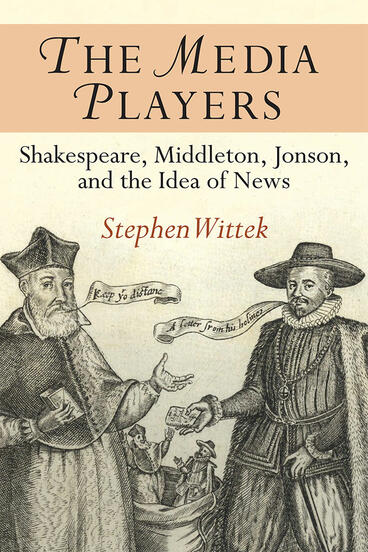The Media Players
Shakespeare, Middleton, Jonson, and the Idea of News
News culture in England grew—not coincidentally—as a spectacular era of theatrical production and innovation reigned
Description
The Media Players: Shakespeare, Middleton, Jonson, and the Idea of News builds a case for the central, formative function of Shakespeare’s theater in the news culture of early modern England. In an analysis that combines historical research with recent developments in public sphere theory, Dr. Stephen Wittek argues that the unique discursive space created by commercial theater helped to foster the conceptual framework that made news possible.
Dr. Wittek’s analysis focuses on the years between 1590 and 1630, an era of extraordinary advances in English news culture that begins with the first instance of serialized news in England and ends with the emergence of news as a regular, permanent fixture of the marketplace. Notably, this period of expansion in news culture coincided with a correspondingly extraordinary era of theatrical production and innovation, an era that marks the beginning of commercial theater in London, and has left us with the plays of William Shakespeare, Ben Jonson, and Thomas Middleton.
Stephen Wittek is a post-doctoral fellow at McGill University, where he received his PhD in Literature.
Reviews
"Stephen Wittek’s The Media Players: Shakespeare, Middleton, Jonson, and the Idea of News argues that theater played a central role in the development of news culture and a proto-public sphere in seventeenth century England. This supplements recent work in history on the early seventeenth-century development of English news culture by Curtis Perry forcefully arguing for the importance of theater, even though it is also acknowledged that news is a 'massive public conversation' in which all manner of producers and consumers participate."
- Omnibus
--Omnibus
"In a clear and authoritative manner, Wittek succeeds in making accessible some complex ideas. His view of early modern theatre as a powerful and interconnected cultural driver of news media is compelling and thought provoking."
- Parergon
--Parergon

